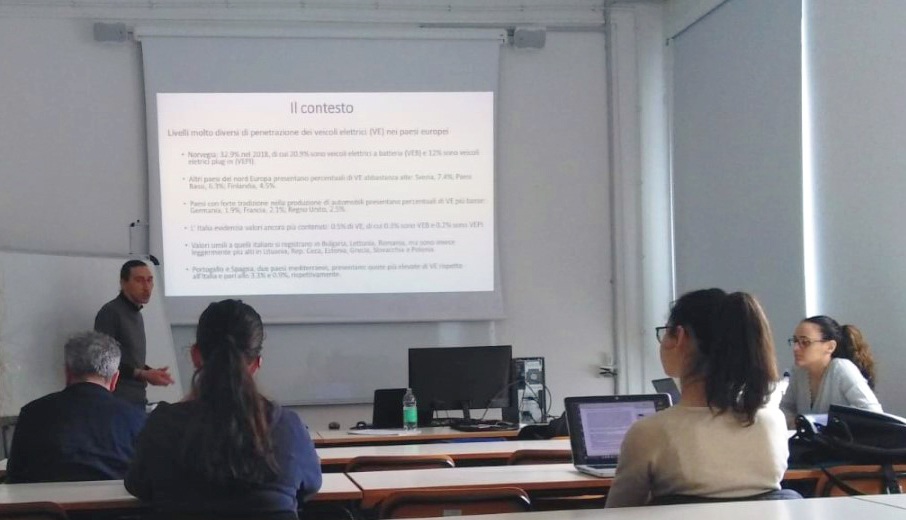28th May 2019 - Conference day organized by Dipartimento di Scienze Economiche, Aziendali, Matematiche e Statistiche of Università degli Studi di Trieste with the participation of Dipartimento di Ingegneria e Architettura and the support of Direzione Centrale Ambiente e Energia
Climate change affects lives all around the world. Climate change cannot be stopped without the decarbonisation of transport. Transport emits about 23% of CO2. Transport emissions have grown faster than any other sector in the last 50 years. Demand for transport will continue to grow massively in the coming decades and immediate action is needed. Its share could reach 40% by 2030 and 60% by 2050. And as transport is currently 92% dependent on oil, it is particularly difficult to decarbonise.
In the spirit of the Decarbonising Transport initiative (https://www.itf-oecd.org/decarbonising-transport ), the study day proposes some sectoral insights that allow to assess the market prospects (supply and demand) of innovative technologies in the transport sector and the production of energy from renewable sources.
In particular, the paper "The structure of Italian consumers' preferences for electric vehicles: evidence and scenarios" by Marco Giansoldati, Lucia Rotaris, Mariangela Scorrano and Romeo Danielis of the Department of Economic, Business, Mathematical and Statistical Sciences was based on data collected within the MUSE project.
This study reports the results of a stated preference study carried out on a representative sample of the Italian population (N=996) at the end of 2018, on consumers’ preferences between an electric car (EC) and a petrol car. Results from a multinomial logit (MNL) model show that the attributes purchase price, fuel economy, driving range, charging time, and free parking play a relevant role in determining consumer choice. We show that Italian respondents have, ceteris paribus, a positive attitude towards ECs, contrary to the findings of several previous Italian and international studies. Moreover, the willingness-to-pay (WTP) for a 1-km increase in the EC driving range is equal to €29, a lower estimate than those presented in most of the previous literature.

The high heterogeneity in Italian consumers’ preferences is explained in a random parameter logit (RPL) model with the variable EC knowledge. Scenario analysis suggests that the impact of financial incentives is much stronger than that of technological improvements and that EC knowledge plays a very relevant role for EC market uptake. Given the high price sensitivity of Italian consumers, we expect cheap and small ECs with limited driving range to be preferred over expensive sedans with larger batteries.
| Festival of sustainable development flyer evento_sostenibilit_28.05.2019_-_locandina_21_05_2019_2019-05-21_15-39-06.pdf ( 110 bytes, published on 25 June, 2019 - 12:30 ) |